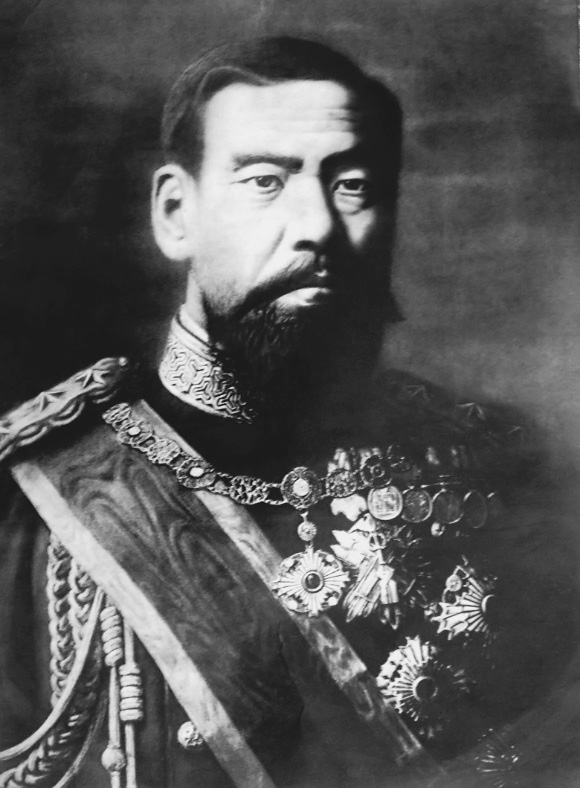Today in History - July 30
• Philadelphia's founder William Penn dies
• Japan's modernising Emperor Meiji dies
• Kon Tiki raft reaches Polynesia from South America
-- Compiled by James Finlayson-Bald
 Emperor Meiji (1852-1912) in his fifties. He was responsible for moving Japan from an isolated society into its modern form. During the Meiji Era (1868-1912) fundamental changes were made to Japan's social structure, internal politics, armed forces, administration, laws, and foreign relations.
On this date:
1178—Frederick "Barbarosa", King of Germany and Holy Roman Emperor, deprived his cousin Henry the Lion of his estates and was crowned King of Burgundy.
Emperor Meiji (1852-1912) in his fifties. He was responsible for moving Japan from an isolated society into its modern form. During the Meiji Era (1868-1912) fundamental changes were made to Japan's social structure, internal politics, armed forces, administration, laws, and foreign relations.
On this date:
1178—Frederick "Barbarosa", King of Germany and Holy Roman Emperor, deprived his cousin Henry the Lion of his estates and was crowned King of Burgundy.
1568--Sir Humphrey Gilbert (half-brother to Sir Walter Raleigh) reached the coast of New-foundland in his quest for the North-West Passage.
1609--The Iroquois Indians were defeated by the French and Hurons when confronted by firearms for the first time, at Ticonderoga, New York.
1619—The Virginia Assembly, the first legislative body in America, met at Jamestown. It governed until the revolution in 1776.
1684--The Iroquois Indians submitted to rule by the King of England.
17l8--William Penn died. The son of an admiral, he adopted the beliefs of the Quakers which he expounded in a book, "The Sandy Foundation Shaken", which landed him in the Tower of London. He found a good friend in James, Duke of York (later James II) who helped him secure a large tract of land in the Americas where he set up a colony of Quakers. The religious tolerance of the new colony attracted settlers from other sects, a lot of them fleeing from the awful Puritans. The city of Philadelphia was founded in 1682 and a liberal constitution was drawn up.
1793--York (Toronto) in Canada was founded by General John Simcoe.
1909—The U.S. government purchased its first aeroplane from the Wright brothers.
1912—Meiji Tenno (Mutsuhito), 122nd Emperor of Japan, died. His power was restored after the last of the hereditary Shoguns, whose power extended back to the twelfth century, had been forced to resign. The "Meiji Restoration" as it was called, marked the end of feudalism, the modernisation of the administrative and legal systems and the emergence of Japan as a great military and commercial power.
1915—Police Lieutenant Charles Becker was executed. His brutal career had been exposed by gambler Herman "Beansie" Rosenthal. Becker hired four hoodlums to shoot Rosenthal, which they did as he was leaving the Metropole Cafe. Quickly rounded up, the killers named Becker as their sponsor, and all were executed.
1947--Thor Heyerdahl and his raft Kon-Tiki reached Puka-Puka in Polynesia after sailing from South America.
1948—All Commonwealth citizens were given the status of British citizens by the British Commonwealth Act.
Birthdays:
Giorgio Vasari, art historian (1511-1574)
Emily Bronte, novelist (1818-1848)
Quote:
However evil a man's livelihood may be, let him but worship Me with love and serve no other, then shall he be reckoned among the good indeed, for his resolve is right.
-- Bhagavad-Gita IX:30
The above article was written by James Finlayson-Bald.
Edited and illustrations added by David Paul Wagner.
|
